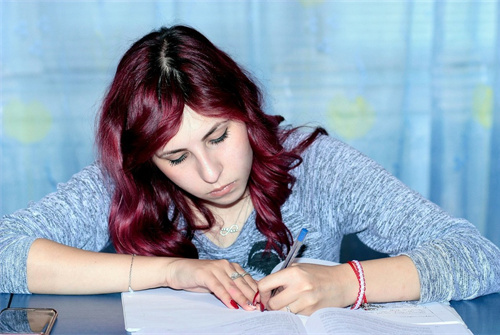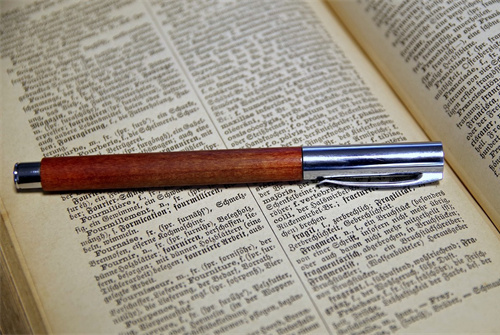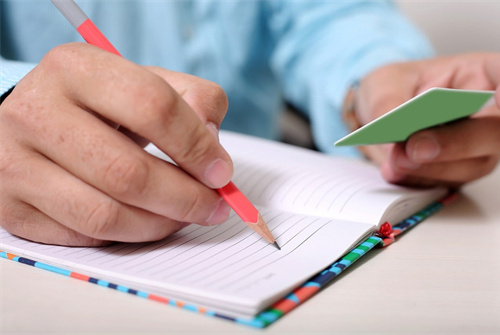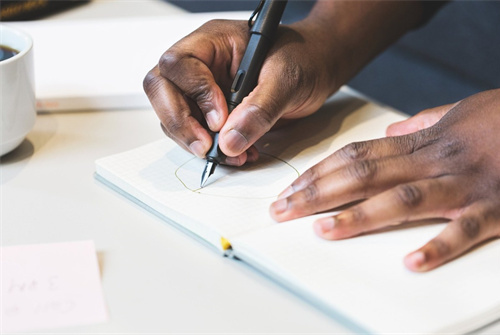【简介】感谢网友“11548”参与投稿,这里小编给大家分享一些,方便大家学习。
【第1句】:七年级上册英语第一单元短语
七年级 (上)重点句型和词组 七年级(上) Uints 1-6 I.重点句型 Starter Good morning/afternoon/evening. Good morning/afternoon/evening. How are you? I'm fine,/OK,thanks. Fine,thanks. What's this in English? It's a map. It's V. Spell it please. K-E-Y. What color is it/the key? It's blue. The key is yellow. Hello, Frank. Hello/Hi, Eric. Unit 1 My name is Gina. What's your name? My name is Jenny. I'm Jenny. Jenny. Nice to meet you. Nice to meet you , too. What's his name? His name is Jenny. Jenny. What's her name? Her name is Linda.. Linda. What's your first name? My first name is Jack. Jack. What's your last/family name? My last/family name is Green. It's Green. What's your/his/her phone number? My /His/Her phone number is 234-4567 It's 281-91【第76句】: Unit 2 Is this your pencil? Is that/this/it your backpack? Yes, it is. No, it isn't . It's his backpack. This/That is my eraser. How do you spell it/pen? P-E-N. Call Allan at 486-67895 Call 685-6098 Call Mary. Phone # 235-78【第65句】: Is that your computer game in the lost and found case? Yes, it is. No, it isn't. Unit 3 This is my sister. That/This is his sister. These/Those are my two brothers. Is she your friend? Yes, she is. No, she isn't. Is he your brother? Yes, he is. No, he isn't. Thanks for the photo of your family. Here is my family photo. Who's your sister? This/She is my sister. Unit 4 Where's my backpack? Where's my backpack? It's under the table. Where are your baseballs? They're on the floor. Is the baseball on the sofa? Yes ,it is. No, it isn't. I don't know. Are they on the bed? Yes, they are. No, they aren't. Are these/those your books? Yes, they are. No, they aren't. Please take these things to your sister. Can you bring some things to school? The keys are in the drawer. Here's my room. Unit 5 Do you have a soccer ball? Do you have a ping-pong ball? Yes, I do. No, I don't. Does he/she have a tennis racket? Yes, he/she does. No, he/she doesn't. Let's play ping-pong. It's boring. That sounds good/interesting. I don't have a ping-pong ball. He/She doesn't have a volleyball. She/He has a great sports collection. We have many sports clubs. He watches them on TV. Do you have some more paper? Yes, I do. No, I don't. Unit 6 Do you like bananas? Do you like hamburgers? Yes, I do. No, I don't. Does he/she like a salad? Yes ,he/she does. No ,he/she doesn't. She/He likes hamburgers for lunch. She doesn't like hamburgers. Let's have French fries. For dinner, she has chicken and tomatoes. Great!。
【第2句】:七年级上册英语预备篇1单元所有句子 急用呀
刚好 我也上初一
1 good
2 morning
3 Good morning
4 hi
5 hello
6 I
7 am
8 I am
9 are
10 you
11 yes
12 nice
13 to
14 meet
15 too
16 welcome
17 China
18 thanks
19 Miss
20 see
21 let
22 us
23 let's = let us
24 begin
25 stand
26 up
27 stand up
28 class
29 sit
30 down
31 sit down
32 please
33 thank
34 Thank you
35 this
36 is
37 my
38 Mr. = mister
39 mom
40 teacher
41 how
42 do
43 How do you do?
44 How are you?
45 fine
46 and
47 OK
48 good-bye
49 bye
50 afternoon
51 Good afternoon
52 later
53 See you later.
54 See you.
55 bye-bye
楼主给分 好幸苦的呢
【第3句】:七年级上册英语第一单元短语
七年级<;新目标英语>; (上)重点句型和词组 七年级(上) Uints 1-6 I.重点句型 Starter Good morning/afternoon/evening. Good morning/afternoon/evening. How are you? I'm fine,/OK,thanks. Fine,thanks. What's this in English? It's a map. It's V. Spell it please. K-E-Y. What color is it/the key? It's blue. The key is yellow. Hello, Frank. Hello/Hi, Eric. Unit 1 My name is Gina. What's your name? My name is Jenny. I'm Jenny. Jenny. Nice to meet you. Nice to meet you , too. What's his name? His name is Jenny. Jenny. What's her name? Her name is Linda.. Linda. What's your first name? My first name is Jack. Jack. What's your last/family name? My last/family name is Green. It's Green. What's your/his/her phone number? My /His/Her phone number is 234-4567 It's 281-91【第76句】: Unit 2 Is this your pencil? Is that/this/it your backpack? Yes, it is. No, it isn't . It's his backpack. This/That is my eraser. How do you spell it/pen? P-E-N. Call Allan at 486-67895 Call 685-6098 Call Mary. Phone # 235-78【第65句】: Is that your computer game in the lost and found case? Yes, it is. No, it isn't. Unit 3 This is my sister. That/This is his sister. These/Those are my two brothers. Is she your friend? Yes, she is. No, she isn't. Is he your brother? Yes, he is. No, he isn't. Thanks for the photo of your family. Here is my family photo. Who's your sister? This/She is my sister. Unit 4 Where's my backpack? Where's my backpack? It's under the table. Where are your baseballs? They're on the floor. Is the baseball on the sofa? Yes ,it is. No, it isn't. I don't know. Are they on the bed? Yes, they are. No, they aren't. Are these/those your books? Yes, they are. No, they aren't. Please take these things to your sister. Can you bring some things to school? The keys are in the drawer. Here's my room. Unit 5 Do you have a soccer ball? Do you have a ping-pong ball? Yes, I do. No, I don't. Does he/she have a tennis racket? Yes, he/she does. No, he/she doesn't. Let's play ping-pong. It's boring. That sounds good/interesting. I don't have a ping-pong ball. He/She doesn't have a volleyball. She/He has a great sports collection. We have many sports clubs. He watches them on TV. Do you have some more paper? Yes, I do. No, I don't. Unit 6 Do you like bananas? Do you like hamburgers? Yes, I do. No, I don't. Does he/she like a salad? Yes ,he/she does. No ,he/she doesn't. She/He likes hamburgers for lunch. She doesn't like hamburgers. Let's have French fries. For dinner, she has chicken and tomatoes. Great!。
【第4句】:人教版七年级上册的英语书 第一单元的所有单词
第一单元单词及短语
【第1句】: my 我的pron.
【第2句】: name 名字n.
【第3句】: is 是v.
【第4句】: clock 时钟n.
【第5句】: I 我pron.
【第6句】: am 是v.
【第7句】: I'm =I am
【第8句】: nice 好的;令人愉快的adj.
【第9句】: to 用于与动词原形一起构成动词不定式 prep.
【第10句】: meet 遇见;相逢v.
【第11句】: you 你;你们pron.
【第12句】: what 什么 pron.& adj.
【第13句】: what's =what is
【第14句】: your 你的;你们的pron.
【第15句】: hello (表示问候)喂int.
【第16句】: hi (表示问候)嗨int.
【第17句】: his 他的pron.
【第18句】: and 和;又;而且conj.
【第19句】: her 她的pron.
【第20句】: question 问题;难题;询问;疑问n.
【第21句】: answer 问答;答复;答案n.
【第22句】: look 看;望;看起来v.
【第23句】: first 第一num.
【第24句】: first name 名字
【第25句】: last 最后的;上一个的adj.
【第26句】: last name 姓氏
【第27句】: boy 男孩n.
【第28句】: girl 女孩n.
【第29句】: zero 零num.
【第30句】: one 一num.
【第31句】: two 二num.
【第32句】: three 三num.
【第33句】: four 四num.
【第34句】: five 五num.
【第35句】: six 六num.
【第36句】: seven 七num.
【第37句】: eight 八num.
【第38句】: nine 九num.
【第39句】: telephone 电话n.
【第40句】: number 数;数字n.
【第41句】: telephone number 电话号码
【第42句】: phone 电话;电话机n.
【第43句】: phone number 电话号码
【第44句】: it 它pron. 45 it's=it is
【第46句】: card 卡;卡片n
【第47句】: ID card (ID=identification) 身份证
【第48句】: family 家;家庭n.
【第49句】: family name 姓氏
【第5句】:七年级上册人教版1~9单元英语笔记
一. 词汇 ⑴ 单词 【第1句】: 介词:in, on, under, behind, near, at, of 1). in表示"在……中", "在……内"。
例如: in our class 在我们班上 in my bag 在我的书包里 in the desk 在桌子里 in the classroom 在教室里 2). on 表示"在……上"。例如: on the wall 在墙上 on the desk 在桌子上 on the blackboard 在黑板上 3). under表示"在……下"。
例如: under the tree 在树下 under the chair 在椅子下 under the bed 在床下 4). behind表示"在……后面"。例如: behind the door 在门后 behind the tree 在树后 5). near表示"在……附近"。
例如: near the teacher's desk 在讲桌附近 near the bed 在床附近 6). at表示"在……处"。例如: at school 在学校 at home 在家 at the door 在门口 7). of 表示"……的"。
例如: a picture of our classroom 我们教室的一幅画 a map of China 一张中国地图 【第2句】: 冠词 a / an / the: 冠词一般位于所限定的名词前,用来署名名词所指的人或事物。冠词有不定冠词和定冠词两种。
不定冠词有两个形式,即a和an。a用在以辅音音素开头的词前,如a book; an用在以元音音素开头的字母前,如an apple. a或an与可数名词单数连用,泛指某类人或某物中的一个。
This is a cat. 这是一只猫。 It's an English book. 这是一本英语书。
His father is a worker. 他的爸爸是个工人。 the既可以用在可数名词前,也可以用在不可数名词前,表示某个或某些特定的人或事物,也可以指上文提到过的人或事物。
Who's the boy in the hat? 戴帽子的男孩是谁呀? ------ What can you see in the classroom? ------ I can see a bag. ------ Where's the bag? ------ It's on the desk. ------- 你能在教室里看到什么呀? ------ 我能看见一个书包。 ------ 书包在哪呀? ------ 在桌子上。
【第3句】:some和any ①在肯定句中用some.例如: There are some books on the desk.桌子上有一些书。 Lucy has some good books露西有一些好书。
②在疑问句和否定句中用any。例如: Is there any ink in your pen?你的钢笔里有墨水吗? Do you have any brothers and sisters?你有兄弟姐妹吗? There isn't any water in the glass.杯子里没有水。
⑵记住它们的特殊用法。 ①some亦可用于表示盼望得到对方肯定的答复或表示建议、委婉请求的疑问句中,这一点我们不久就会学到。
例如: Would you like to have some apples?你想吃苹果吗? ②any也可用于肯定句中,表示"任何的"。例如: Any one of us can do this.我们当中任何一个都能做这个。
some 和any的用法是经常出现的考点,希望大家能准确地掌握它们的用法。 【第4句】:family family看作为一个整体时,意思是"家庭",后面的谓语动词be用单数形式 is ;如把family看作为家庭成员时,应理解为复数,后面的谓语动词be应用are。
My family is a big family. 我的家庭是个大家庭。 My family are all at home now. 我的家人现在都在家。
Family强调由家人组成的一个集体或强调这个集体中的成员。home指个人出生、被抚养长大的环境和居住地点。
house指"家"、"房屋",侧重居住的建筑本身。 His family are all workers. 他的家人都是工人。
My home is in Beijing. 我的家在北京。 He isn't at home now. 他现在不在家。
It's a picture of my family. 这是一张我全家的照片。 【第5句】: little的用法 a little dog 一只小狗,a little boy 一个小男孩。
little常用来修饰有生命的名词。 *但little还可表示否定意义,意为"少的",加不可数名词。
There is little time. 几乎没时间了。 There is little water in the cup. 杯中水很少。
⑵ 词组 on the desk 在桌子上 behind the chair 在椅子后 under the chair 在椅子下面 in her pencil-box 在她的铅笔盒中 near the door 在门附近 a picture of a classroom 一个教室的图片 look at the picture 看这张图片 the teacher's desk 讲桌 a map of China 一张中国地图 family tree 家谱 have a seat 坐下,就坐 this way 这边走 二. 日常用语 【第1句】: Come and meet my family. 【第2句】: Go and see. I think it's Li Lei. 【第3句】: Glad to meet you. 【第4句】: What can you see in the picture? I can see a clock / some books. 【第5句】: Can you see an orange? Yes, I can. / No, I can't. 【第6句】: Where's Shenzhen? It's near Hong Kong. 【第7句】: Let me see.(口语)让我想想看。 see 在这是"明白、懂了",不可译作"看见"。
例如: 【第8句】: Please have a seat. seat表示"座位",是个名词。have a seat表示"就坐",也可以说take a seat, 和sit down的意思相同。
三. 语法 【第1句】: 名词所有格 名词如要表示与后面名词的所有关系,通常用名词所有格的形式,意为"……的"。一般有以下几种形式: (1). 一般情况下在词尾加"'s"。
例如: Kate's father Kate的爸爸 my mother's friend 我妈妈的朋友 (2). 如果复数名词以s结尾,只加"'"。例如: Teachers' Day 教师节 The boys' game 男孩们的游戏 (3). 如果复数名词不以s结尾,仍加"'s"。
例如: Children's Day 儿童节 Women's Day 妇女节 (4). 表示两个或几个共有时,所有格应加在后一个名词上。例如: Lucy and Lily's room Lucy 和Lily的房间 Kate and Jim's father Kate 和Jim的爸爸 动物和无生命事物的名词的所有格一般不在词尾加"'。
【第6句】:初一英语每单元主要句子
人教版新目标英语七年级(下)各单元知识概要 Unit 1 Where's your pen pal from? 【第1句】:词组 be from= come from 来自。
pen pal=pen friend 笔友 like and dislike 好恶;爱憎 live in….在。居住 speak English 讲英语 play sports 做体育运动 a little French 一些法语 go to the movies 去看电影 an action movie 一部动作片 on weekends 在周末 Excuse me 对不起,打扰 get to 到达、抵达 beginning of 在。
开始的时候 at the end of 在。结束的时候 arrive at / 【第2句】:句型 (1)、Where主 +be+主语+from? 主语+be+from+地点. (2)、Where do/does+主语+live? 主语+live/lives in… (3)、What language do/does +主语+speak? 主语+speak/speaks…. (4)、主语+like/likes+doing… 【第3句】:日常交际用语 1-Where is your pen pal from? -He's from China. 2-Where does she live? --She lives in Tokyo. 3-Does she speak English? -Yes,she does/No,she dosen't. 4-Is that your new pen pal? -Yes,he is /No,he isn't. 5-What language does she speak? -She speaks English. Unit 2 Where's the post office 【第1句】:词组 post office 邮局 pay phone 投币式公用电话 next to 在。
隔壁 across from 在。对面 in front of 在。
前面 between…and… 在。和。
之间 on a street 在街上 in the neighborhood 在附近 on the right/left 在右边/在左边 on one's right/left 在某人的右边/左边 turn right/left 向右/左转 take a walk 散步 have fun 玩得开心 the way to …去。的路 take a taxi 打的/乘出租车 go down(along)…沿着。
走 go through。穿过。
have a good trip 旅途愉快 【第2句】:句型 (1)、Is there a bank near here? Yes,there is .It's on Centre Street. No,there isn't. (2)、Where's the sumpermarket? It's next to the library. (3)、Bridge Street is a good place to have fun. (4)、I hope you have a good trip. (5)、If you are hungry,you can buy food in the restaurant. (6)、Talk a walk though the park.. (7)、enjoy后接名词或动词-ing形式. Do you enoy(=like) your work? Do you enjoy(=like) living in the city? 【第3句】:日常交际用语 (1)、Is there a ….?句型Eg: -Excuse me.Is there a hotel in the neighborhood. -Yes, there is. No.there isn't (2)、Where is …?句型Eg: -Where is the park,please? -It's behind the bank.(肯定回答) -I'm sorry I don't know. (否定回答) (3)、Which is the way to +地点? 句型.例如: - Which is the way to the library. (4)、How can I get to +地点?句型.例如: -How can I get to the restaurant? (5)、Can you tell me the way to +地点?句型.例 - Can you tell me the way to the post office? (6)、Let me tell you the way to my house. (7)、Just go straight and turn left. Unit 3 Why do you like koalas? 【第1句】:词组 want to do sth .想要做某事 want sb to do sth 想要某做某事 want sth 想要某物 Let sb do sth 让某人做某事 kind of 有几分种类 a kind of 一种… …years old …年龄 如:ten years old 十岁 like to do sth 喜欢做某事 like doing sth play with … 与。一起玩 be quiet 安静 during the day 在白天 at night 在夜间 have a look at.. 看。
one…the other 一个。另一个。
【第2句】:句型 (1)、-why do you like pandas? -Because they're very cure. (2)、-Why dose he like koalas? -Because they are kind of interesting. (3)、-Where are lions from? -Lions are from South Africa. (4)、-What animals do you like? -I like elephants. 【第3句】:日常交际用语 (1)、-Let's see the lions. (2)-Why do you want to see the lions? -Becase they are very cute. (3)-Do you like giraffes? Yes,I do./ No,I don't (4)-What other animal do you like? _I like dogs.too other+ 名词的复数.表示没有特定的数量范围 the other+名词的复数表示有特定的数量范围. (5)-Why are you looking at me? -Because you are very cute. (6)-Let us play games. –Great! Let me see. Unit 4 I want to be an actor. 【第1句】:词组 want to be+职业 想要成为。
shop assistant 店员 bank clerk 银行职员 work with 与。
一起工作 work hard 努力工作 work for 为。
而工作 work as 作为。
而工作 get.. from…从。
获得。
give sth.to.sb /give.sb.sth 把某物给某人 正确的表示:give it/them to sb. 错误的表示:give sb.it/them in the day 在白天 at night 在夜间 talk to /with 与…讲话 go out to dinners 外出吃饭 in a hospital 在医院 newspaper reporter 报社记者 movie actor 电影演员 【第2句】:句型 (1)-What do/does+某人+do? 例:-What do you do?-I'm a student. -What dose he do? He's a teacher. (2)-What do/does+某人+want to be? 例:What do you want to be?-I want to be a teacher. -What does she want to be ?She want to be a nuser. (3)-Where does your sister work? -She works in a hospital. (4)-Does he work in the hospiat Yes.he does/No,he doesn't (5)-Does she work late? -Yes,she does/No.she doesn't (6)-英语中询问职业的几种表达方式: What do/does …do? What is…? What is your father? What's one's job?例:What's your father's job? Unit 5 I'm watching TV. 一。









